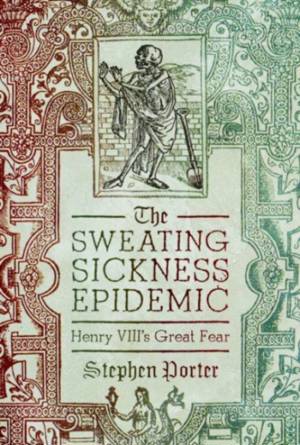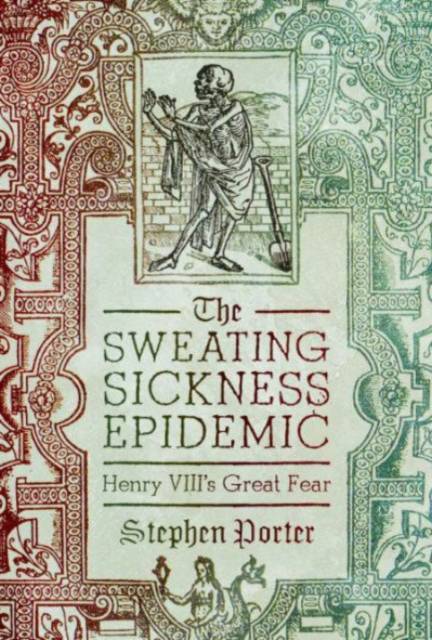
Door een staking bij bpost kan je online bestelling op dit moment iets langer onderweg zijn dan voorzien. Dringend iets nodig? Onze winkels ontvangen jou met open armen!
- Afhalen na 1 uur in een winkel met voorraad
- Gratis thuislevering in België vanaf € 30
- Ruim aanbod met 7 miljoen producten
Door een staking bij bpost kan je online bestelling op dit moment iets langer onderweg zijn dan voorzien. Dringend iets nodig? Onze winkels ontvangen jou met open armen!
- Afhalen na 1 uur in een winkel met voorraad
- Gratis thuislevering in België vanaf € 30
- Ruim aanbod met 7 miljoen producten
Zoeken
€ 27,95
+ 55 punten
Omschrijving
Among the array of diseases which brought death to Tudor England, the sweating sickness stood out, for the speed with which it struck, its dreadful effects on its victims and the death rates which it produced, that together generated a fear verging on panic when it was identified. The sweating sickness attacked the cities, towns and the countryside, not sparing the palaces. It threatened everyone, from the king in his castle to the beggars at his gates, including members of the dynasty and the political structure, the courtiers and those who directed the government, the church and the law. Contemporaries could do little more than make a bolt for it, and that included the king and his closest advisors, who moved furtively in a small group from one house to another away from London. The principal epidemics came between 1485, when it made its first appearance, and 1551, and it was confined to England and Wales, apart from one major eruption across northern Europe in 1529. Known as the English disease, this rapidly acting virus became Henry VIII's overriding fear, aggravating his well-known hypochondria and controlling his movements.
The nature of the sweating sickness, its incidence and impact are all examined in this book, in the context not only of Tudor England and the problems of the Henrician succession, but also in the context of epidemic disease in Europe more widely. This book teases out the similarities and differences between 'the sweat' and its better-known, if equally feared, contemporary infectious disease, bubonic plague.
The nature of the sweating sickness, its incidence and impact are all examined in this book, in the context not only of Tudor England and the problems of the Henrician succession, but also in the context of epidemic disease in Europe more widely. This book teases out the similarities and differences between 'the sweat' and its better-known, if equally feared, contemporary infectious disease, bubonic plague.
Specificaties
Betrokkenen
- Auteur(s):
- Uitgeverij:
Inhoud
- Aantal bladzijden:
- 160
- Taal:
- Engels
Eigenschappen
- Productcode (EAN):
- 9781399064286
- Verschijningsdatum:
- 30/06/2023
- Uitvoering:
- Hardcover
- Formaat:
- Genaaid
- Afmetingen:
- 157 mm x 236 mm
- Gewicht:
- 476 g

Alleen bij Standaard Boekhandel
+ 55 punten op je klantenkaart van Standaard Boekhandel
Beoordelingen
We publiceren alleen reviews die voldoen aan de voorwaarden voor reviews. Bekijk onze voorwaarden voor reviews.











